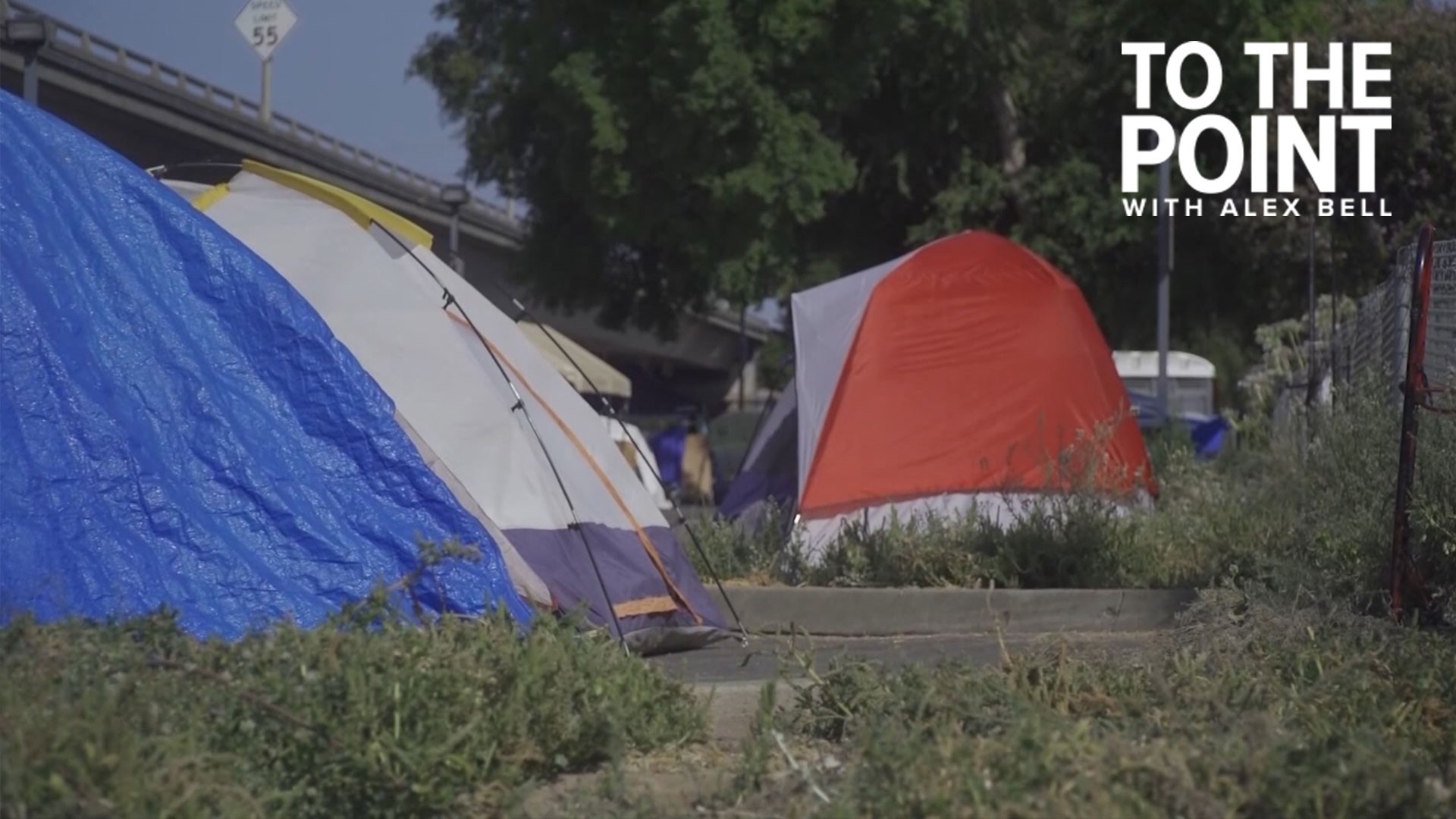SACRAMENTO, Calif. — For months now, sidewalks on both sides of Broadway under the Highway 99 overpass in Sacramento have been filled to the curb with tents and other personal possessions of people experiencing homelessness.
Sacramento Police officers and outreach workers arrived Friday morning to try and connect the residents with services and ultimately bring them into compliance with the city ordinances that ban the blocking of sidewalks, personal possessions on public property and camping near critical infrastructure. Residents were told they could no longer take up space on the sidewalks.
Brian Pedro, the Incident Commander of the city’s new Incident Management Team, said this camp violated all three city ordinances.
The team he leads was announced during one of Mayor Darrell Steinberg's State of the City addresses in late August. He says the team is the new way of addressing the homeless crisis and follows the same structure as an incident team responding to a wildfire or other disaster.
“I think one of the reasons that this structure works is because of the constant reevaluation,” said Pedro. “There a daily meeting so everybody knows what their assignments are. There are weekly command staff meetings, there are weekly operations meetings. It's really just making sure that we're staying on keeping that tempo.”
Pedro, from the Sacramento Fire Department, is bringing various city departments, Sacramento County and community organizations together to work toward the same objectives.
“Compliance with our city codes, which we’re getting compliance with. We’re going to shrink that footprint of excessive storage that’s out there and try and keep our sidewalks clear,” said Pedro. “We’re hitting those marks and then we’re providing the outreach.”
He says the city, in partnership with the county and local human service agencies, have worked to clear encampments along the W-X corridor and Alhambra Boulevard over the past few weeks.
"There was about 25,000 pounds of trash just in itself cleaned up from that area [on X Street.] We did have 932 hypodermic needles," he said. "It doesn't really tell the story in itself. I don't like, really, bringing that in the forefront. It's just part of what is the total picture that's out there."
Pedro acknowledged that clearing an encampment is disruptive to the people living there, that it's "no different than going into somebody's house and telling them, ‘I want you to go live somewhere else,’” he said.
He says residents are given 72 hours notice and outreach teams offer services, which can be a painstaking process.
“It takes at least 10 contacts just to get trust in even accepting anything,” he said. “It's baby steps. You can't take somebody that has a behavioral issue or has an addiction issue and just pluck them out of the street and put them somewhere. It's too much. It's just too challenging for them.”
On the flipside, however, he knows there are many other people wishing to see more encampments cleared — and faster.
“This is a very complex problem, and it's not that simple to solve,” he said. “Everybody's tired of hearing that, but it has taken time for us to get here and it's going to take time for us to unwind this.”
Sammy Love knows this firsthand. He has been experiencing homelessness for 15 years.
“They just keep us moving,” he said. "You don’t stay in one place too long.”
He lived with all his possessions in a camp a mile away, on 16th and W streets, and says the city cleared it the day before —telling him he could only bring essentials with him.
“It’s hard to gather the things you need to survive out here in the streets when you don’t have anything. They keep taking it away from you and beating you down and… you have to keep gathering stuff you need to basically live and you’re never going to get ahead. You’re never going to get anywhere,” he said.
ABC10 spoke with him near the Broadway encampment Friday morning.
“It doesn’t look like much but it’s their home,” he said. "Home is where you lay your head, I guess.”
Asked where he will go now that he has been cleared from his encampment, Love said “just around the corner. As far as we can get. I mean, we’re getting tired of moving. I don’t know what else to do.”
He said he feels like the rules, and political will to enforce them, have changed so much and frequently in recent years that people in the unhoused community "don't know what our rights are, really."
Pedro encourages people to call 311 to report non-emergency concerns about unlawful encampments. Last year, the average response to a 311 call was 33 days, Mayor Steinberg said when announcing the new Incident Management Team. Mid-September it was 16 days, Pedro told ABC10 at the time. As of Friday, it’s 11 days, and Pedro hopes to get it down to a day or two.
“We're headed in the right direction, I can tell you that,” said Pedro.
There is new help available, as ABC10 reported Thursday. A community wellness center is now open on X Street near Broadway. Learn more about that HERE.



















